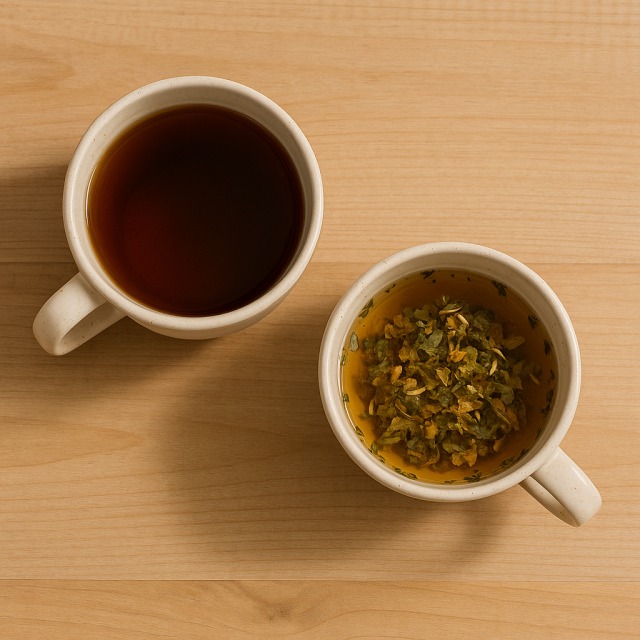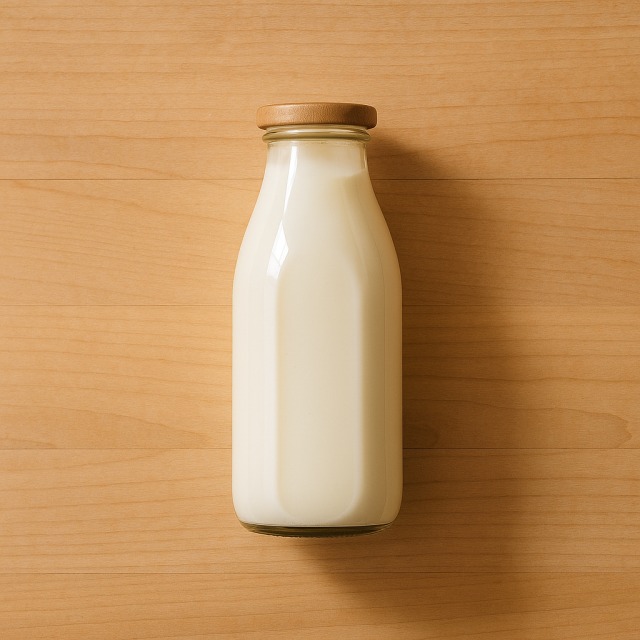Calorie Chart / Beverages / Coffee
How Many Calories Are in Coffee?
Calculation of the nutritional value & Recommended Dietary Intake of coffee
For ml and a calorie requirement of kcal
| Calories 2 kcal | Proteins 0.2 g | Lipids 0 g | Carbohydrates 0.4 g |
| 0% | 0% | 0% | 0% |
Health benefits of coffee

Coffee - 100ml
Calories 4 kcal
Proteins 0.4 g
Lipids 0 g
Carbohydrates 0.6 g
Coffee is considered a very low-calorie drink: with only 4 calories per 100 g, it fits naturally into any plan that seeks to monitor calories, reduce calories, or simply avoid hidden calories. Its caloric load is therefore negligible compared with most beverages, making it a truly low-calorie element.
Beyond its minimal calories, coffee supplies small amounts of vitamin B2 (riboflavin) and vitamin B3 (niacin), plus minerals such as potassium and magnesium. It is also rich in polyphenols, especially chlorogenic acids, well-known antioxidants that are likewise found in blueberry and blackcurrant. These compounds are studied for their supposed protective effect on cardiovascular health and for helping limit the oxidative stress generated during intense exercise. Moderate caffeine intake may improve alertness, enhance endurance performance, and slightly boost metabolic rate, which could help the body burn more calories over the day. Thanks to these assets, coffee is often cited as a companion for people keeping an eye on calories while still wanting a flavor boost.
Historically, the beverage traveled from the Ethiopian highlands to the Arabian Peninsula in the 15th century, before conquering Europe's coffee houses in the 17th century. That long journey explains why coffee culture varies so widely, from Italian espresso—which also contains almost no calories—to traditional Turkish preparations. Whatever the method, the common point remains: black coffee delivers flavor with virtually no calories.
Tips for incorporating coffee into a balanced diet
If your priority is to manage calories, keep your coffee black. Combine a morning cup with a slice of wholemeal bread spread thinly with peanut butter for sustained energy without an explosion of calories. Another light breakfast idea: mix oat flakes with plain yogurt and sip your coffee alongside; you stay full while keeping total calories low.
For a gourmet touch that still respects calories, sprinkle ground coffee into a homemade smoothie based on banana and skimmed milk. In savory cooking, try a coffee-spice rub on a grilled beef steak; the robust aroma means you can cut back on salty sauces, trimming calories. Dessert lovers can enjoy a controlled-portion tiramisu by reducing added sugar and replacing mascarpone with light fromage blanc—this keeps the creamy texture while shaving off calories. Whichever recipe you choose, remembering to taste before sweetening will prevent a stealthy rise in calories.
Frequently Asked Questions
- How many calories are in coffee?
- Coffee provides only 4 kcal per 100 g, making it one of the lowest-calorie drinks available.
- Does adding sugar or milk change coffee calories?
- Yes: a single teaspoon of sugar adds about 20 calories, while 20 ml of whole milk adds roughly 12 calories. These additions quickly move a cup from 4 calories to 40 calories or more.
- Is coffee useful for weight loss because of its calories?
- Its negligible calories help keep overall calorie intake down, and caffeine may slightly raise metabolism, but sustainable weight loss still depends on a balanced diet and regular activity.
- Can coffee help me burn more calories during exercise?
- Caffeine can enhance endurance and may increase the number of calories burned during prolonged effort, although the effect remains moderate.
- What is the best time to drink coffee to control calorie intake?
- Consuming coffee mid-morning or just before training can curb appetite and avoid late-day caffeine that may disturb sleep, which in turn can influence hunger and calories consumed later.
Similar foods
Information provided by Calorie Menu may contain inaccuracies or errors. It cannot, under any circumstances, substitute medical advice or medication.










